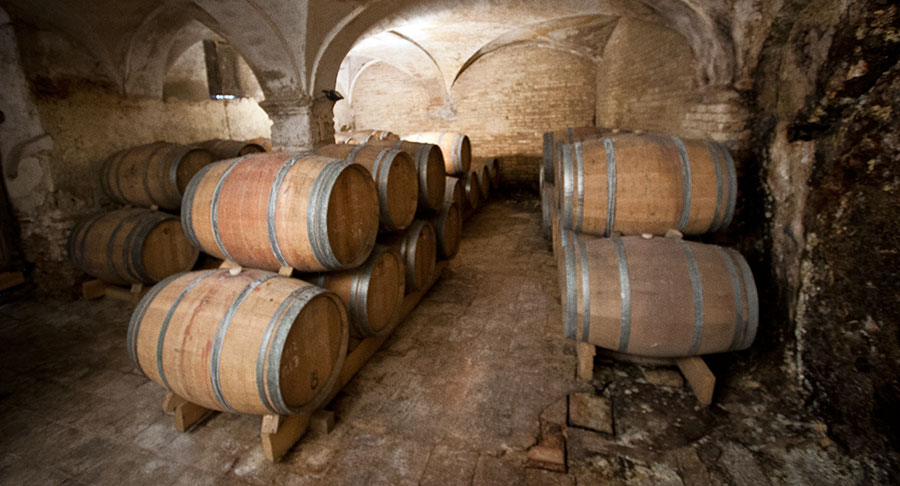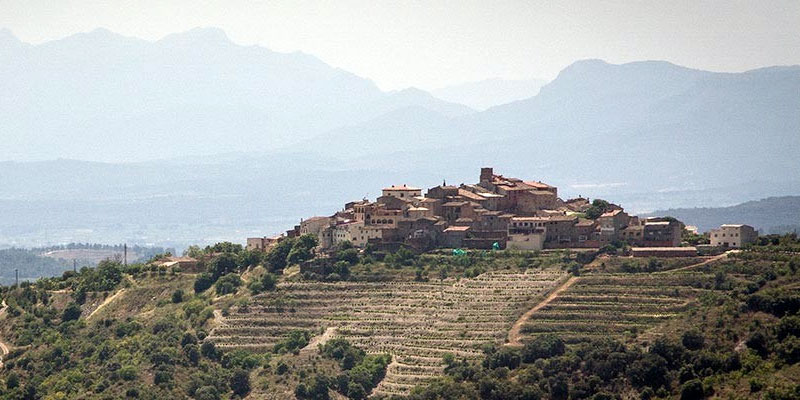Sometime back on the Facebook page of Vinologue, a student in Madrid sent a message infuriated that the official website of DOQ Priorat wasn’t available in Spanish. Back then as it is now, you could go to doqpriorat.org and see that it is indeed available in Spanish, as well as English, French, and the local language, Catalan. I tried to explain that we had nothing to do with the appellation and were an independent wine book publisher. Apparently feeling as if she hadn’t made herself look foolish enough, she then demanded that we publish our books in Spanish and English instead of Catalan and English. I threw in the towel on that discussion very quickly.
To be clear, Vinologue books are always printed in English first and foremost as it’s become the principal language for tourism the world over–maybe China will change this but it seems doubtful. Then, as a secondary language, if the budget allows, we publish an edition in the local language. In this case, as Priorat is in Catalonia, that is Catalan. While all Catalans are bilingual in Catalan and Spanish, the majority of those outside Barcelona have Catalan as their mother tongue. We knew this could be polemic despite the actual facts.
There is no way this mother tongue argument will satisfy Spanish nationalists as anyone who follows the news in Spain has seen that the issue of Catalan Independence is ongoing and very much unresolved. So instead of trying to convince people that the world was round as opposed to flat, I would tell them, “Look, we have a limited budget. The main visitors to Priorat are people who speak Catalan. The second are people who speak English. Third are French. Fourth are Germanic. Fifth and only when you get to fifth place are people who only speak Spanish.” Anyone can see with how much a full translation, layout, and print run would cost for each language (upwards of 25,000€), it makes it essentially impossible to accommodate a Spanish language version in economic terms. But rest assured, if I wrote a book about Bierzo, Sherry, or Rioja, there would be editions in English and Spanish.
But again, why publish in Catalan when all Catalans speak Spanish? This comes back to the issue of the local language and that there are several bookstores in Catalonia who won’t stock books not printed in Catalan. This may seem silly to people who come from larger language groups in the US or UK but such are the politics of this corner of Spain at the moment and I’m doing my best to navigate them.
While I’ve seen this visitor language breakdown via my own observations, there is also thankfully the tourism office in Falset that gave me some of those things we call, “facts”. In what I received, it fully backs up what I had casually seen in that 64% of the visitors to Priorat are from Catalonia. There are then a smattering of others but nearly 15% of this overall total have English as their mother tongue.
There are however, 7% of visitors who come to Priorat from the rest of Spain that isn’t Catalonia. While it isn’t enough to justify another language edition, this seems like a decent amount of Spanish speakers until you look at the breakdown of that and 29% are from Valencia where they speak Valencian, which is mutually intelligible with Catalan. There are 4% from Aragón but these could easily be from the bordering areas with Catalonia where they also speak Catalan called “La Franja“. This means that that 7% from Spain is actually a Spanish-only group of around 4.5% of the total and thus, as I had surmised, fewer speakers than those of French or Germanic origins putting Spanish in to fifth place in terms of language spoken by visitors to Priorat.
This is of course sorting out a very small pot of peas as it’s still a small market for enotourism. While there are about 150 functioning cellars between DOQ Priorat and DO Montsant, the tourism office only gets statistics from about 25 of them. These may seem like a hugely unrepresentative set of statistics but these 25 are the ones who receive the vast majority of the visitors as they’re typically open regular hours for tastings–this is a rarity in Priorat.
This group reported about 25,000 visitors in total with the vast majority being people on their own or a couple. This is not a region for massive tour groups like you see in other parts of the world like Napa Valley or Stellenbosch. It’s a small and relatively closed-off place that just happens to produce great wine. The people who are finding this out appear to be growing by about 3% each year but it’s still a very quiet place. I remember two people I was taking around last year in October who said,
“It’s just unimaginable that in such a top region like this, you can drive between villages and not see other cars on the road in the middle of the day.”
To which I replied, “Yeah, and this is the harvest. You should see it in February.”




Ha estat un plaer que compartissis aquesta anècdota, però molt descriptiva de les posició de la persona en qüestió vers una llengua local. Quina nosa els fa!
Salut i fins d’aquí unes hores a Vilafranca del Penedès amb l’Empordà!
Hola Miquel, gracias a tus dos vinologues – Priorat y Montsant – ya fui dos veces al Priorat desde Brasil. Me encantan los vinos, la comida, la amabilidade de su gente. Visité Burgos-Porta, Capafons-Ossó, Cellers de Escaladei, Clos Figueras, Sangenís i Vaqué y Celler de l´Encastell. Ya me alojé en Els Guiamets y Gratallops, aunque que ya he visitado Siurana, La Morera de Montsant, Falset, Porrera y Poboleda. Cada vez que voy me traigo unas 12 bottelas de vino. A mi esposa e hijo tambien les gusta mucho estar allí. Entonces, muchas gracias por sus libros!! Quizaz nos conozcamos la próxima vez que va a Catalonia. Y si, las carreteras son realmente vacías! Adios!
Hola Davi, muchas gracias por tu comentario. Siempre es una gran satisfacción escuchar que mis libros han sido útiles para la gente interesada en la región del Priorat. Cuando vuelvas a visitarnos, sería un placer compartir unos vinos contigo. Dame un toque, estoy en Porrera.